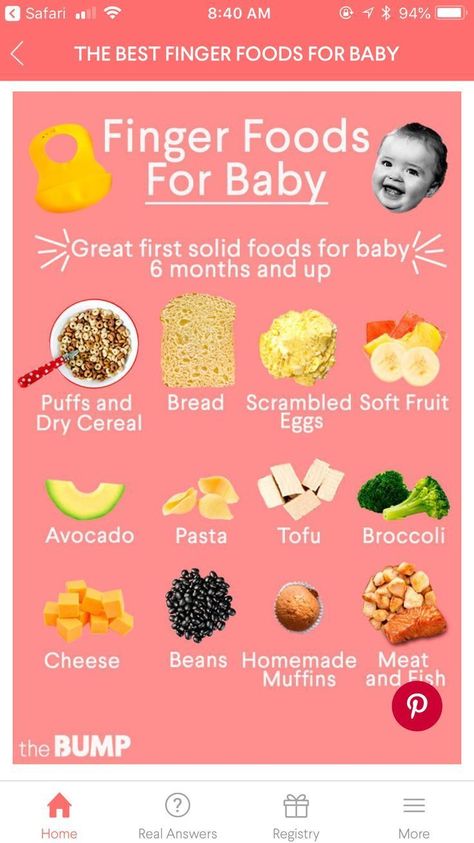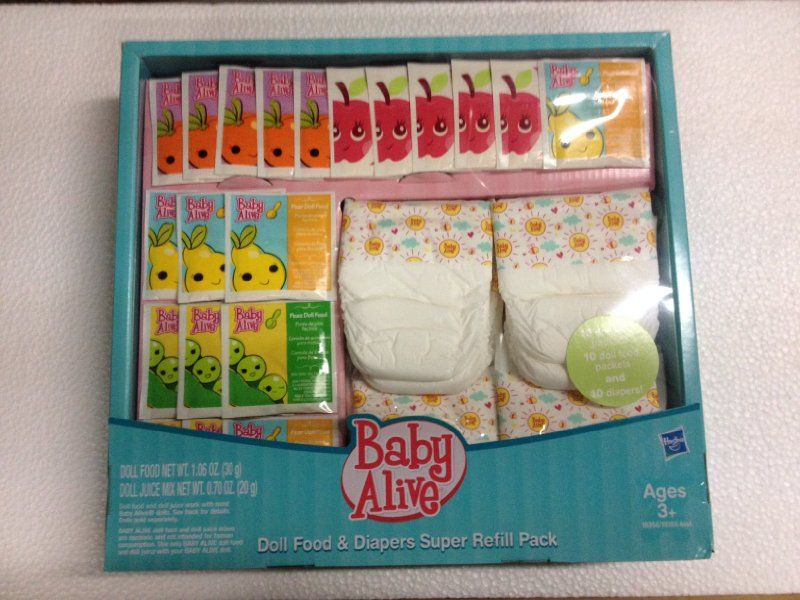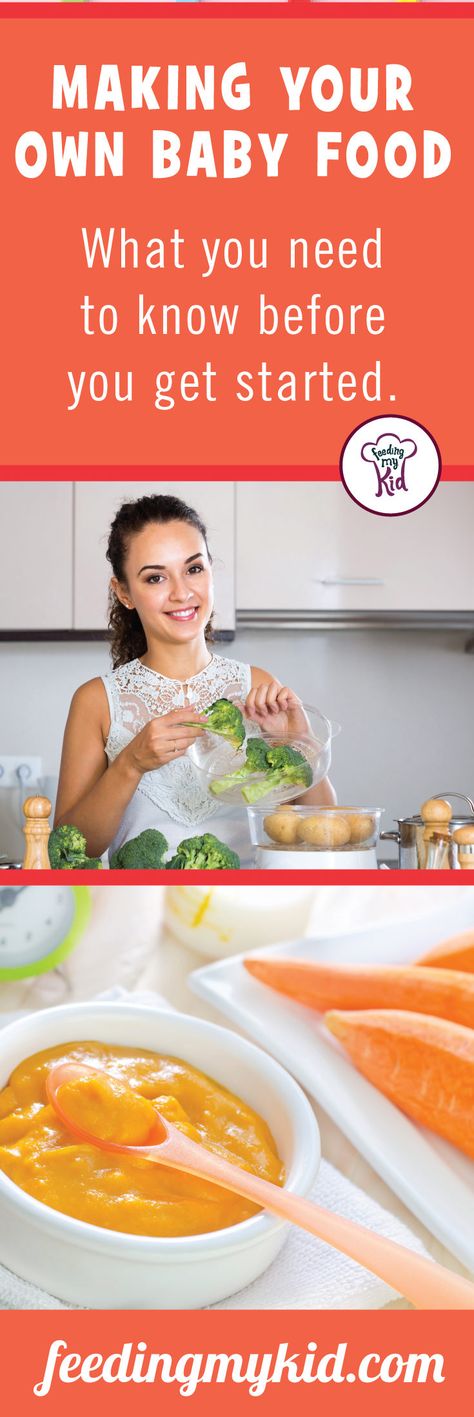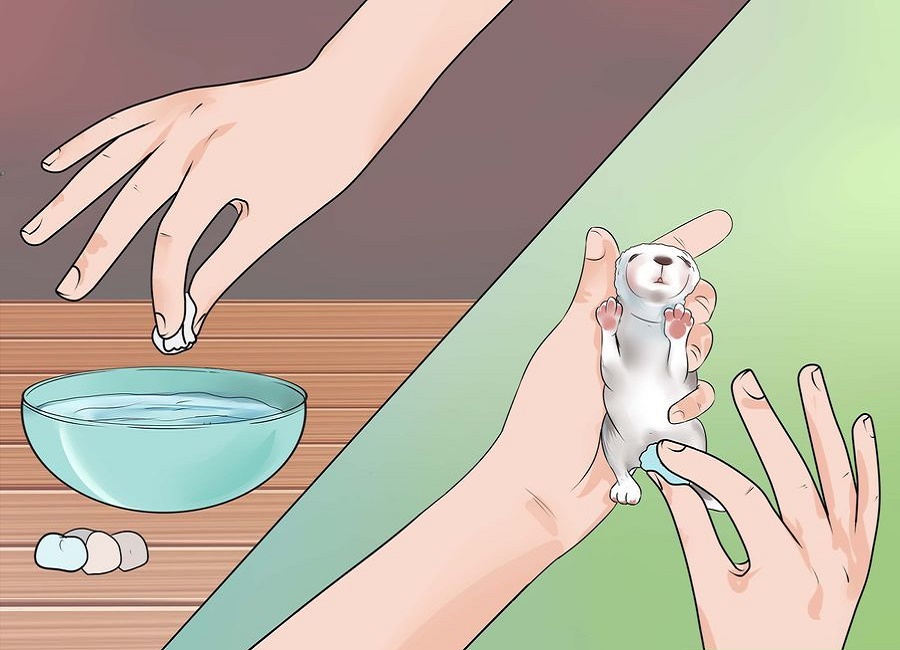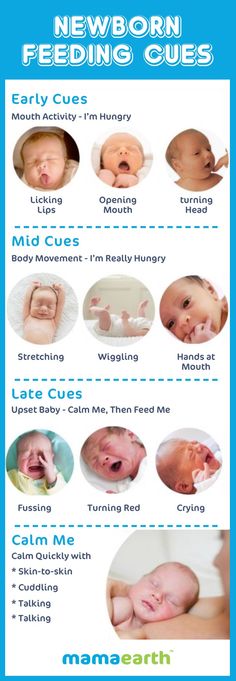Poor feeding baby
Causes, Emergency Care, and Treatments
“Poor feeding in infants” is a term used to describe an infant with little interest in feeding. It can also refer to an infant who is not feeding enough to receive the necessary nutrition required for adequate growth.
Poor growth associated with lack of feeding can lead to a separate condition called failure to thrive.
Poor feeding is caused by a variety of factors. It differs from picky eating, in which a baby may reject one form of milk for another or a toddler may refuse certain foods.
No matter the precise cause of poor feeding, undernutrition is a top concern. In fact, the World Health Organization (WHO) estimates that 45 percent of child deaths are related to undernutrition.
It is important not to dismiss poor feeding as something that will improve over time. This is a critical point in your child’s life, and missing key nutrients can lead to physical and cognitive concerns.
One of the most common causes of poor feeding is premature birth. Premature babies are typically poor feeders because they often have not yet developed the skills needed to suck and swallow milk.
Still, feeding usually increases as baby grows. If your little one was born prematurely and still has feeding trouble after leaving the hospital, it’s important to continue following up closely with your pediatrician, particularly if feeding concerns worsen or do not improve.
Other causes include congenital conditions such as jaundice and infections such as viral gastroenteritis. Once these conditions are treated, poor feeding usually subsides.
Serious conditions
Poor feeding can also be caused by serious conditions, such as Beckwith-Wiedemann syndrome. This is an overgrowth syndrome that causes infants to be particularly large and grow at a considerably fast pace. It affects an estimated 1 in 13,700 newborns worldwide.
Other serious conditions include:
- congenital hypothyroidism, which occurs when the thyroid fails to develop or function properly
- other genetic conditions, including Down syndrome
- hypoplastic left heart, a rare condition that occurs when the left side of the heart fails to develop properly and is unable to pump blood to the body
- other heart defects
Less serious conditions
Other causes of poor feeding aren’t related to a congenital condition at all.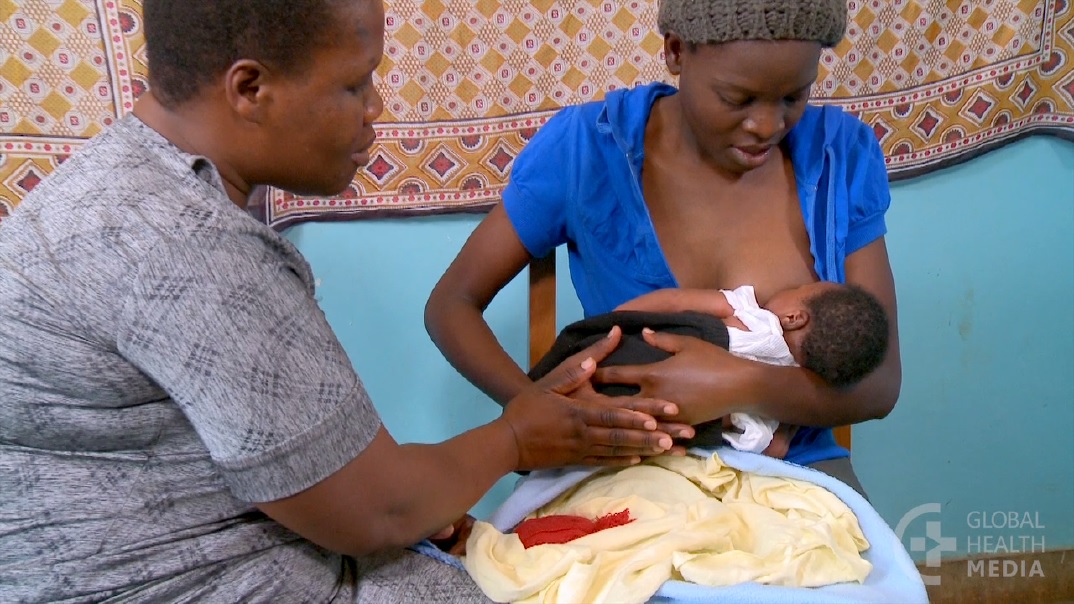 Temporary illnesses can make feeding uncomfortable (and even painful) for infants.
Temporary illnesses can make feeding uncomfortable (and even painful) for infants.
Common ailments that get in the way of feeding include:
- diarrhea
- ear infections
- coughs and colds
- teething
When in doubt, it’s always best to double-check with a pediatrician. You don’t want to assume a minor illness when in fact there could be a serious underlying condition.
Feeding difficulty is a serious matter. When accompanied by other symptoms, emergency care may be required. Seek immediate medical attention if your baby is showing any of the following signs:
- has a fever of over 100°F (37.8°C), an emergency in babies 3 months old and younger
- is vomiting after every feeding
- is vomiting blood
- has a cough with breathing difficulties
- is crying constantly
- has bloody stool
- is wheezing
- is becoming unresponsive to touch
Poor feeding that is caused by an infection will usually stop when the infection is resolved.
Treatment of poor feeding depends on the cause. This can involve changing the feeding schedule to consist of smaller, more frequent meals. If a milk-based intolerance is suspected, your doctor will work closely with you to find a formula and feeding plan that suits your baby.
While serious cases of poor feeding require prompt medical care, other causes can be resolved at home with the advice of a pediatrician.
If your baby is breastfeeding or chestfeeding, try to avoid:
- certain medications that can enter breast milk
- applying lotions and other skin products to your breasts
- high levels of stress — this may also make your milk taste differently
Other considerations may concern formula feeding as well as infants who have started solid foods.
Formula feeding
While breastfeeding is the method of feeding for infants recommended by health agencies such as WHO, it is a fact that not all babies are successful with this method — and not all nursing parents may want or be able to breastfeed.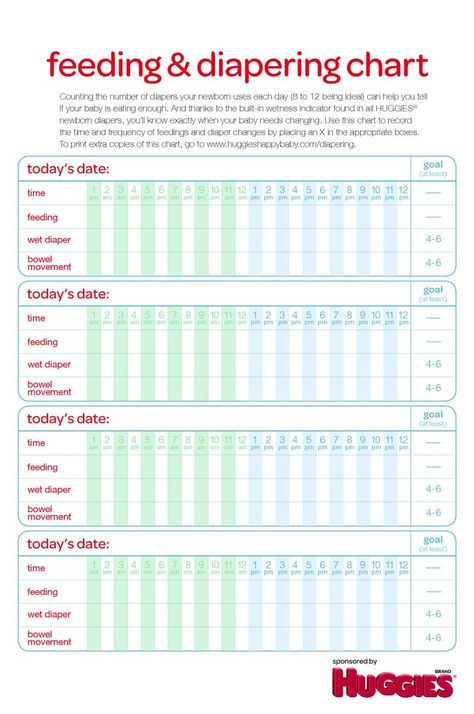
If your baby doesn’t seem to latch on despite repeated attempts, you may consider talking with your doctor about formula feeding. You may still be able to try breastfeeding or chestfeeding, even when supplementing with formula, if you’d like.
The key is that your baby gets adequate nutrition. A lactation consultant may be helpful, if available to you.
“Picky eating”
After baby reaches 6 months of age, your pediatrician may encourage you to introduce solids to their diet. While solids shouldn’t replace breast milk at this phase of your child’s life, most infants require additional nutrients around the 6-month mark.
Examples include:
- rice cereal
- pureed fruits and vegetables
- pureed or soft meats
Introducing solid foods can be exciting for both caregiver and child. However, some infants don’t take to solids as readily as other babies.
This can be alarming, but the issue may be solved by:
- mixing cereal with solid foods
- offering solids in small increments
- only giving solids two to three times per day
- starting with one food at a time, then introducing others as your baby gets used to solids
When an infant doesn’t like solids, it’s easy to jump to the conclusion that they are a “picky eater.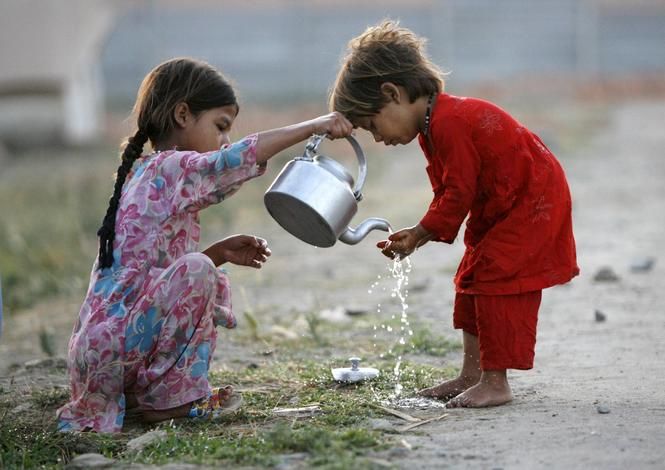 ” However, this phase doesn’t usually start until your baby becomes a toddler.
” However, this phase doesn’t usually start until your baby becomes a toddler.
Stress management
When your baby is eating poorly, it’s easy to get stressed out. This is especially true for new parents who may not yet know the distinctions between serious conditions and minor feeding concerns.
Remember that stress can worsen feeding concerns. It may interfere with attempts at feeding if your infant senses something is wrong.
Managing your stress won’t treat all causes of poor feeding, but it can help in many cases.
It’s difficult to find time for yourself during this busy stage of your life — even a few minutes a day can help. When you feel stress coming on during feedings, take a moment for some deep breathing.
Poor feeding in infants can lead to serious issues, such as malnutrition and stunted growth. It is essential that babies consume and digest the necessary nutrients to thrive and develop.
Any infant who is feeding poorly should be taken to a pediatrician for evaluation. After a proper diagnosis, treatment may be necessary.
After a proper diagnosis, treatment may be necessary.
In other cases, poor feeding can be resolved through refined techniques and perseverance at home. If you suspect feeding difficulties may be causing other concerns, call a doctor right away.
Causes, Emergency Care, and Treatments
“Poor feeding in infants” is a term used to describe an infant with little interest in feeding. It can also refer to an infant who is not feeding enough to receive the necessary nutrition required for adequate growth.
Poor growth associated with lack of feeding can lead to a separate condition called failure to thrive.
Poor feeding is caused by a variety of factors. It differs from picky eating, in which a baby may reject one form of milk for another or a toddler may refuse certain foods.
No matter the precise cause of poor feeding, undernutrition is a top concern. In fact, the World Health Organization (WHO) estimates that 45 percent of child deaths are related to undernutrition.
It is important not to dismiss poor feeding as something that will improve over time. This is a critical point in your child’s life, and missing key nutrients can lead to physical and cognitive concerns.
One of the most common causes of poor feeding is premature birth. Premature babies are typically poor feeders because they often have not yet developed the skills needed to suck and swallow milk.
Still, feeding usually increases as baby grows. If your little one was born prematurely and still has feeding trouble after leaving the hospital, it’s important to continue following up closely with your pediatrician, particularly if feeding concerns worsen or do not improve.
Other causes include congenital conditions such as jaundice and infections such as viral gastroenteritis. Once these conditions are treated, poor feeding usually subsides.
Serious conditions
Poor feeding can also be caused by serious conditions, such as Beckwith-Wiedemann syndrome. This is an overgrowth syndrome that causes infants to be particularly large and grow at a considerably fast pace.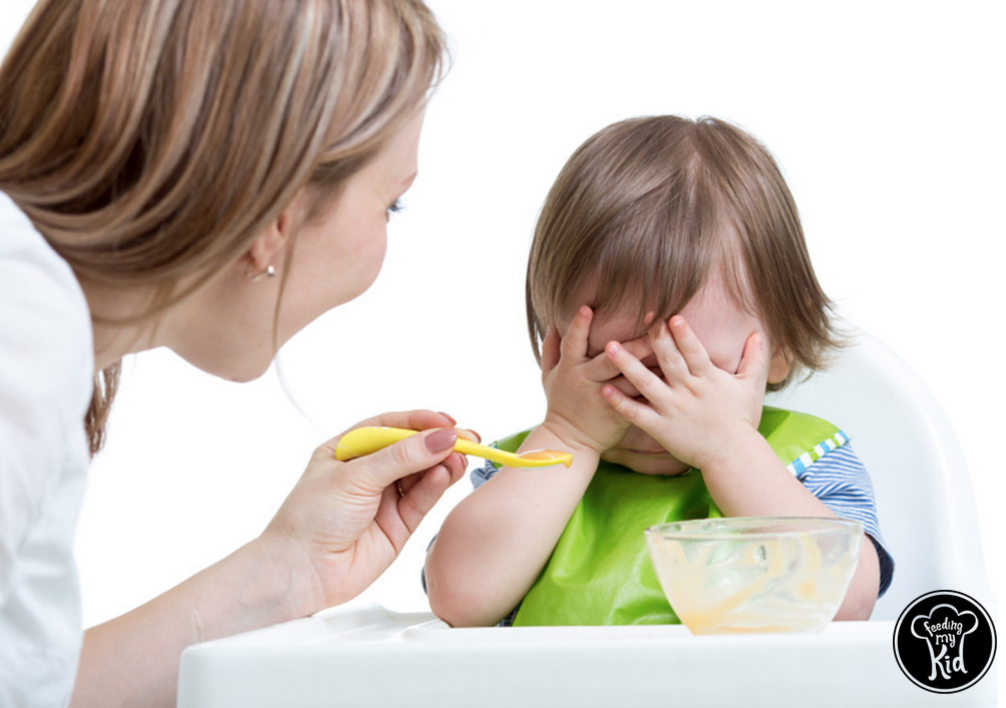 It affects an estimated 1 in 13,700 newborns worldwide.
It affects an estimated 1 in 13,700 newborns worldwide.
Other serious conditions include:
- congenital hypothyroidism, which occurs when the thyroid fails to develop or function properly
- other genetic conditions, including Down syndrome
- hypoplastic left heart, a rare condition that occurs when the left side of the heart fails to develop properly and is unable to pump blood to the body
- other heart defects
Less serious conditions
Other causes of poor feeding aren’t related to a congenital condition at all. Temporary illnesses can make feeding uncomfortable (and even painful) for infants.
Common ailments that get in the way of feeding include:
- diarrhea
- ear infections
- coughs and colds
- teething
When in doubt, it’s always best to double-check with a pediatrician. You don’t want to assume a minor illness when in fact there could be a serious underlying condition.
Feeding difficulty is a serious matter. When accompanied by other symptoms, emergency care may be required. Seek immediate medical attention if your baby is showing any of the following signs:
When accompanied by other symptoms, emergency care may be required. Seek immediate medical attention if your baby is showing any of the following signs:
- has a fever of over 100°F (37.8°C), an emergency in babies 3 months old and younger
- is vomiting after every feeding
- is vomiting blood
- has a cough with breathing difficulties
- is crying constantly
- has bloody stool
- is wheezing
- is becoming unresponsive to touch
Poor feeding that is caused by an infection will usually stop when the infection is resolved.
Treatment of poor feeding depends on the cause. This can involve changing the feeding schedule to consist of smaller, more frequent meals. If a milk-based intolerance is suspected, your doctor will work closely with you to find a formula and feeding plan that suits your baby.
While serious cases of poor feeding require prompt medical care, other causes can be resolved at home with the advice of a pediatrician.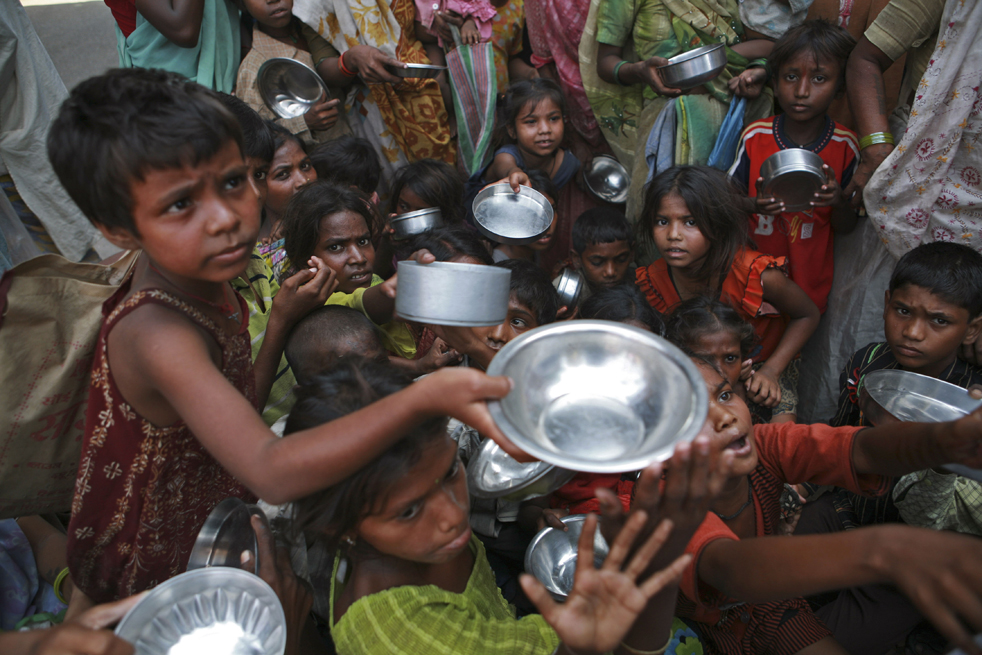
If your baby is breastfeeding or chestfeeding, try to avoid:
- certain medications that can enter breast milk
- applying lotions and other skin products to your breasts
- high levels of stress — this may also make your milk taste differently
Other considerations may concern formula feeding as well as infants who have started solid foods.
Formula feeding
While breastfeeding is the method of feeding for infants recommended by health agencies such as WHO, it is a fact that not all babies are successful with this method — and not all nursing parents may want or be able to breastfeed.
If your baby doesn’t seem to latch on despite repeated attempts, you may consider talking with your doctor about formula feeding. You may still be able to try breastfeeding or chestfeeding, even when supplementing with formula, if you’d like.
The key is that your baby gets adequate nutrition. A lactation consultant may be helpful, if available to you.
“Picky eating”
After baby reaches 6 months of age, your pediatrician may encourage you to introduce solids to their diet. While solids shouldn’t replace breast milk at this phase of your child’s life, most infants require additional nutrients around the 6-month mark.
Examples include:
- rice cereal
- pureed fruits and vegetables
- pureed or soft meats
Introducing solid foods can be exciting for both caregiver and child. However, some infants don’t take to solids as readily as other babies.
This can be alarming, but the issue may be solved by:
- mixing cereal with solid foods
- offering solids in small increments
- only giving solids two to three times per day
- starting with one food at a time, then introducing others as your baby gets used to solids
When an infant doesn’t like solids, it’s easy to jump to the conclusion that they are a “picky eater.” However, this phase doesn’t usually start until your baby becomes a toddler.
Stress management
When your baby is eating poorly, it’s easy to get stressed out. This is especially true for new parents who may not yet know the distinctions between serious conditions and minor feeding concerns.
Remember that stress can worsen feeding concerns. It may interfere with attempts at feeding if your infant senses something is wrong.
Managing your stress won’t treat all causes of poor feeding, but it can help in many cases.
It’s difficult to find time for yourself during this busy stage of your life — even a few minutes a day can help. When you feel stress coming on during feedings, take a moment for some deep breathing.
Poor feeding in infants can lead to serious issues, such as malnutrition and stunted growth. It is essential that babies consume and digest the necessary nutrients to thrive and develop.
Any infant who is feeding poorly should be taken to a pediatrician for evaluation. After a proper diagnosis, treatment may be necessary.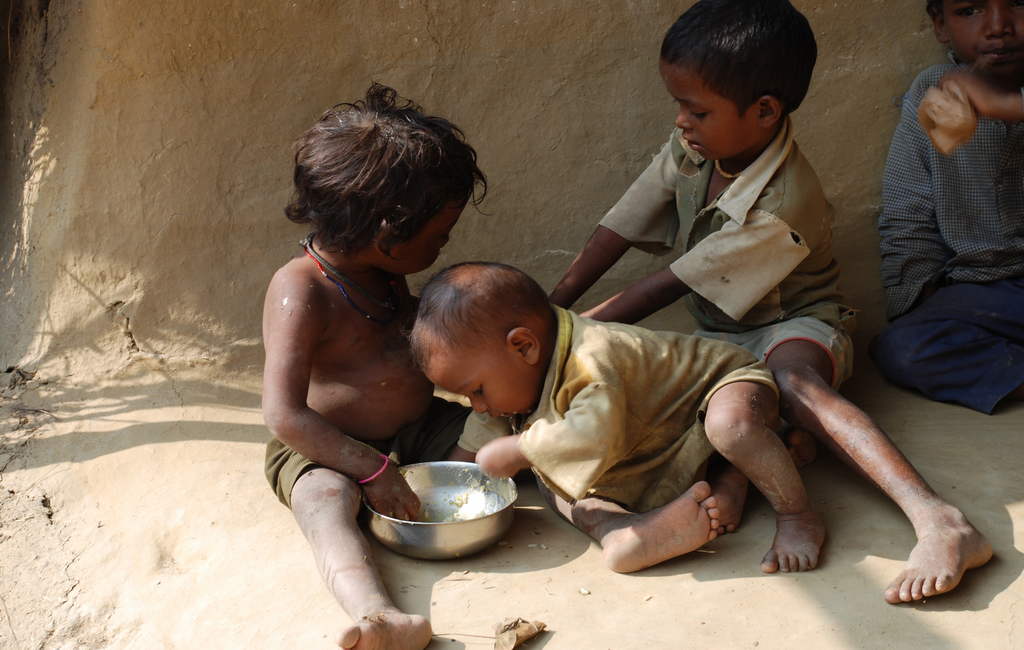
In other cases, poor feeding can be resolved through refined techniques and perseverance at home. If you suspect feeding difficulties may be causing other concerns, call a doctor right away.
Main consequences of malnutrition in childhood
Institute of Clinical Medicine
Kyiv vul. Vadym Hetman, 3
M. Schulyavska 7 15 M. Dorogozhich 33 18
Write on the Priyom
Mon-PT: 08: 00-20: 00 SB: 09: 00-18: 00
Improper nutrition in the children age can lead to the development of serious diseases in adulthood. At the same time, not only the use of unhealthy foods at school age can cause harm, but also the improper introduction of complementary foods to an infant. About the dangers of malnutrition in childhood, how not to make a mistake, said the gastroenterologist Porubinovskaya Inga Alexandrovna. nine0018
— Inga Alexandrovna, tell us what kind of nutrition is wrong for children, and what are its consequences?
Improper nutrition can lead to the development of chronic diseases that will continue into adulthood. Improper nutrition is not only the use of unhealthy foods (fast foods, muffins, sweets, etc.), but also, for example, the wrong time for the introduction of complementary foods to a child, improper processing of foods, etc.
Improper nutrition is not only the use of unhealthy foods (fast foods, muffins, sweets, etc.), but also, for example, the wrong time for the introduction of complementary foods to a child, improper processing of foods, etc.
Each person has individual characteristics that can be traced from early childhood. A person may not tolerate certain foods. Some children, for example, are lactose intolerant, and milk should be removed from their feed as soon as possible. There are also congenital diseases, for example, dyskinesia, which require adherence to a certain nutrition system. Therefore, it is imperative that the child is observed by a pediatrician. You can not self-medicate a child, parents may not know the symptoms of all diseases, so they miss their development, which leads to complications. nine0003
Sometimes children develop pancreatitis after a viral illness. If parents miss this, the disease becomes chronic and accompanies a person all his life. Many parents wonder why a child at the age of 10 has chronic pancreatitis, and the reason is that he was missed when the child was younger.
Nutrition call - consult a doctor
0002 (050) 301-99-26 (067) 446-11-79
Parents should keep in touch with the pediatrician, who will monitor the child's health, including suggesting what kind of food he needs.
— What symptoms might cause parents to suspect that their child has a feeding problem? When should you see a doctor?
Mom should monitor the child's condition and behavior: how he eats, whether he is active or not, whether he has vomiting, diarrhea, constipation, skin rash, etc. If the child does not tolerate some product, the mother should notice that after using it, changes in the baby's well-being occur. If any of these symptoms appear, you should consult your doctor. nine0003
— Can you give general nutritional advice for children?
There are no general recommendations. Each child should have only an individual approach. So, I can say that you need to avoid fast foods, the abuse of sweets, soda and other unhealthy foods.
— And how many times a day should a child eat?
This is also determined individually. There are children who eat every 2 hours from birth, others - after 3-4 hours. The main thing is that the food should not be too frequent or too rare. Adults should have a break of 3-4 hours between meals, children may have less. nine0003
— Should parents have problems with nutrition, should they contact a pediatrician or gastroenterologist?
First you need to contact a pediatrician, and he will, if necessary, refer you to a narrow specialist - a pediatric gastroenterologist.
Prepared by Katerina Vasyutina
Improper nutrition of children under 3 years of age can damage their health in the future
https://ria.ru/20121017/903614210.html
Improper nutrition of children under 3 years of age can damage their health in the future
Improper nutrition of children under 3 years of age can damage health in the future - RIA Novosti, 02/29/2020
Improper nutrition of children under 3 years of age can damage health in the future eat chips, french fries, popcorn, ketchup, mayonnaise, chocolate, drink carbonated drinks. Children receive little specialized food, meat, vegetables and fruits.
Children receive little specialized food, meat, vegetables and fruits.
2012-10-17T17:37
https: //xn---c1acbl2abdlkab1og.xn--p1ai/Awards/
20122
RIA Novosti
1
5
4.7
9000 9000
49000 7 645-6601
FSUE MIA Rossiya Segodnya
https://xn--c1acbl2abdlkab1og.xn--p1ai/awards/
News
ru-RU
https://ria.ru/docs/about /copyright.html
https://xn--c1acbl2abdlkab1og.xn--p1ai/
RIA Novosti
1,000 .xn-p1ai/awards/
1920
1080
True
1920
1440
True
https://cdnn21.img.ria.ru/images/90362/74/903627417_288:0: 4896:3456_1920x0_80_0_0_47ba665df62ed1dbe2f76be405aad92c.jpg
1920
1920
True
RIA Novosti
1
5
4.7
9000
7 495 645-6601 9000
Federal State Unitary Enterprise MIA “Russia Today”
https: //xn---c1acbl2abdlkab1og. xn--p1ai/Awards/
xn--p1ai/Awards/
RIA Novosti
1
5
4.7
96 9000
7 495 64 64 64 64 64 64 64 64 64 64 64 64 64 64 64 64 64 64 64 64 64 64 64 64 64 64 64 64 64 64 64 64 64 646 646 495 64 64 64 646 646 495 64 64 64 646 64 64 64 64 64 64 64 64 646 646 495 64 64 64 64 64 64 64 64 64 64 64 64 64 64 64 64 64 64 64 64 64 64 64AP
Federal State Unitary Enterprise MIA "Russia Today"
https://xn--c1acbl2abdlkab1og.xn--p1ai/awards/
Society, Russia
Society, Russia
MOSCOW, October 17 - RIA Novosti. Almost 30% of Russian children aged one to three years have a tendency to overweight and an increased risk of anemia, this occurs due to malnutrition, said at a press conference in RIA Novosti, the head of the healthy and sick child nutrition department of the Scientific Health Center children of the Russian Academy of Medical Sciences, Professor Tatyana Borovik. nine0003
Reasons for being overweight
She recalled that the Nutrilife study on the nutrition of children under the age of three years was conducted with the participation of specialists from the Scientific Center for Children's Health of the Russian Academy of Medical Sciences and the Russian Academy of Postgraduate Education, and ended quite recently.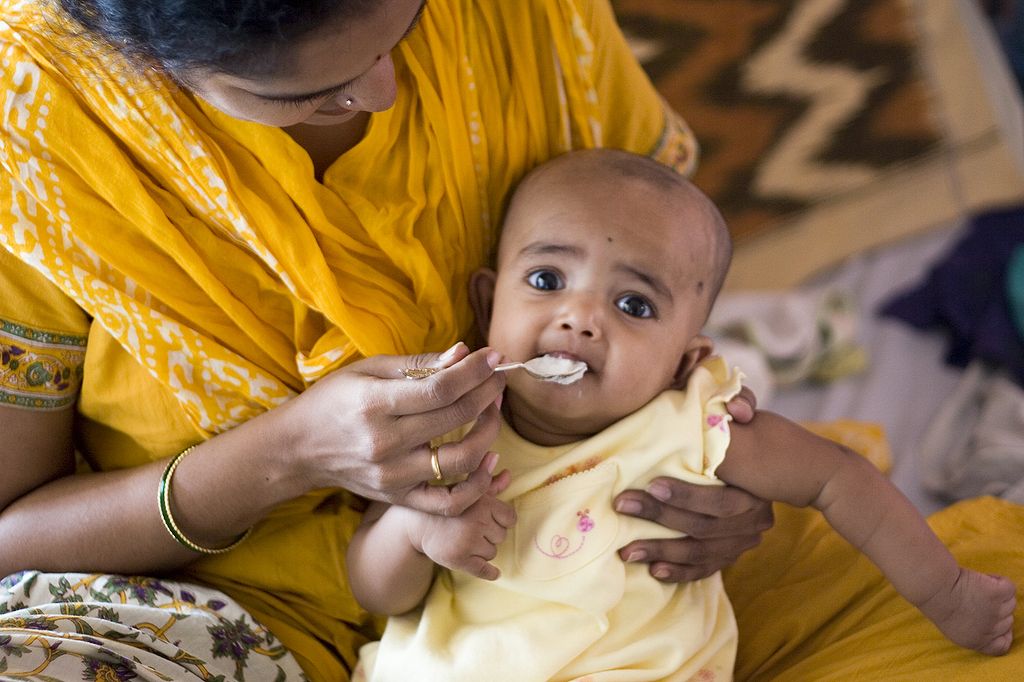 More than two thousand children from 7 federal districts and 20 Russian cities took part in it.
More than two thousand children from 7 federal districts and 20 Russian cities took part in it.
According to her, the study revealed the early introduction of "non-baby" foods into the diet, too little consumption of specialized foods for young children. nine0003
"This leads to the fact that our children do not receive enough vitamins and minerals, especially iron, 27% of children in the second and third years of life tend to be overweight," she said during a round table on the topic "A healthier future begins with proper nutrition."
According to Borovik, this is due to the fact that from the second year of life, parents transfer the child to food from the common table, they allow him to eat chips, french fries, popcorn, ketchup, mayonnaise, chocolate, drink carbonated drinks. "At the same time, children receive little specialized food, meat, vegetables and fruits. And the number of sweets consumed by children, on the contrary, is growing," the professor added. nine0003
Iron problems
Honored Doctor of Russia, professor-pediatrist Irina Zakharova noted that iron deficiency in children's diet significantly increases the risk of anemia.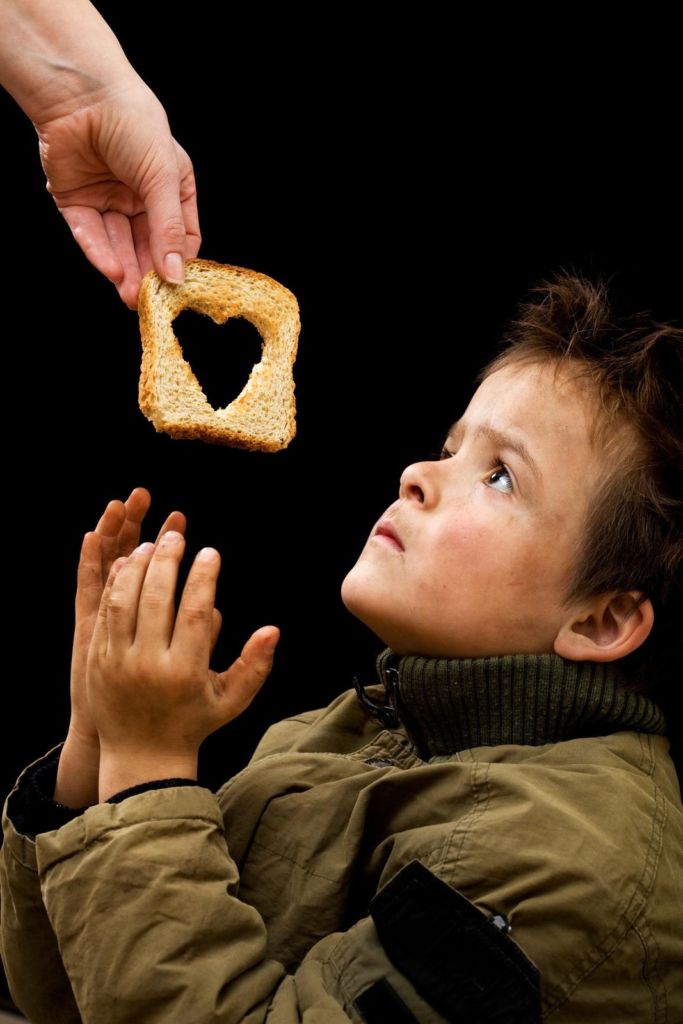 And insufficient iron intake was noted in the study in more than half of the children. The problem of iron deficiency anemia is especially important for children in the first three years of life. "Iron deficiency can affect psychomotor development in the future. Iron deficiency in childhood can affect intellectual development in the future, attention and memory suffer," she said. nine0003
And insufficient iron intake was noted in the study in more than half of the children. The problem of iron deficiency anemia is especially important for children in the first three years of life. "Iron deficiency can affect psychomotor development in the future. Iron deficiency in childhood can affect intellectual development in the future, attention and memory suffer," she said. nine0003
According to Zakharova, there is enough scientific evidence that children with iron deficiency are 2.5 times more likely to get colds. The experts noted with regret that Russia has not yet developed recommendations for the nutrition of children aged one to three years.
Svetlana Zhurova, Deputy Chairman of the Committee of the Federation Council, supported the doctors and confirmed that mothers often do not know how to properly feed their children. She said that since they sit with a child up to a year old, they post a lot of information on the Internet, exchange opinions, but after a year there is an information vacuum. Therefore, young mothers rely only on their intuition and transfer the child to food from the common table. There is also a misconception that eating from a jar leads to gastritis, so moms prefer to cook food based on organic products. However, doctors believe that many products, for example, even cow's milk, are not suitable for children under three years of age. nine0003
Therefore, young mothers rely only on their intuition and transfer the child to food from the common table. There is also a misconception that eating from a jar leads to gastritis, so moms prefer to cook food based on organic products. However, doctors believe that many products, for example, even cow's milk, are not suitable for children under three years of age. nine0003
Not every mother is an expert in baby food and knows how to properly feed a baby, which was confirmed by the results of the Nutrilife study on child nutrition with the participation of scientific institutions of the Russian Academy of Medical Sciences, Christian Stammkoetter, CEO of Nutricia Russia and Kazakhstan, agreed.
"For us, this study is not just a medical project, but the most important scientific component of the large-scale program "First Steps to a Healthy Future". This social initiative is aimed precisely at improving the quality of knowledge about the proper development of babies from one to three years old, and not "only parents, but also pediatricians.


